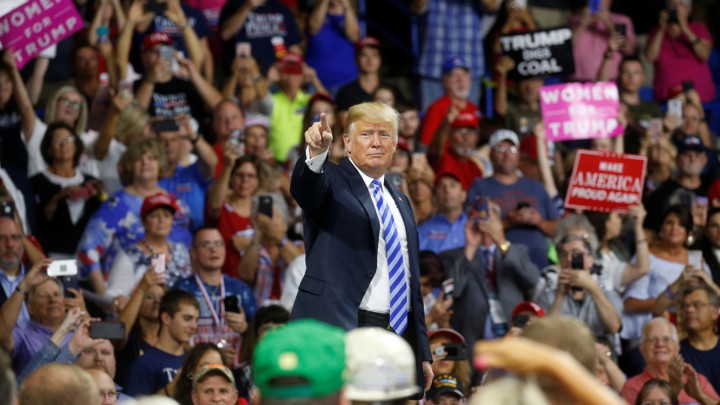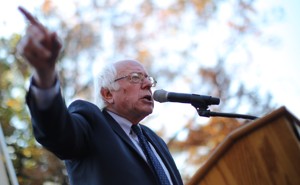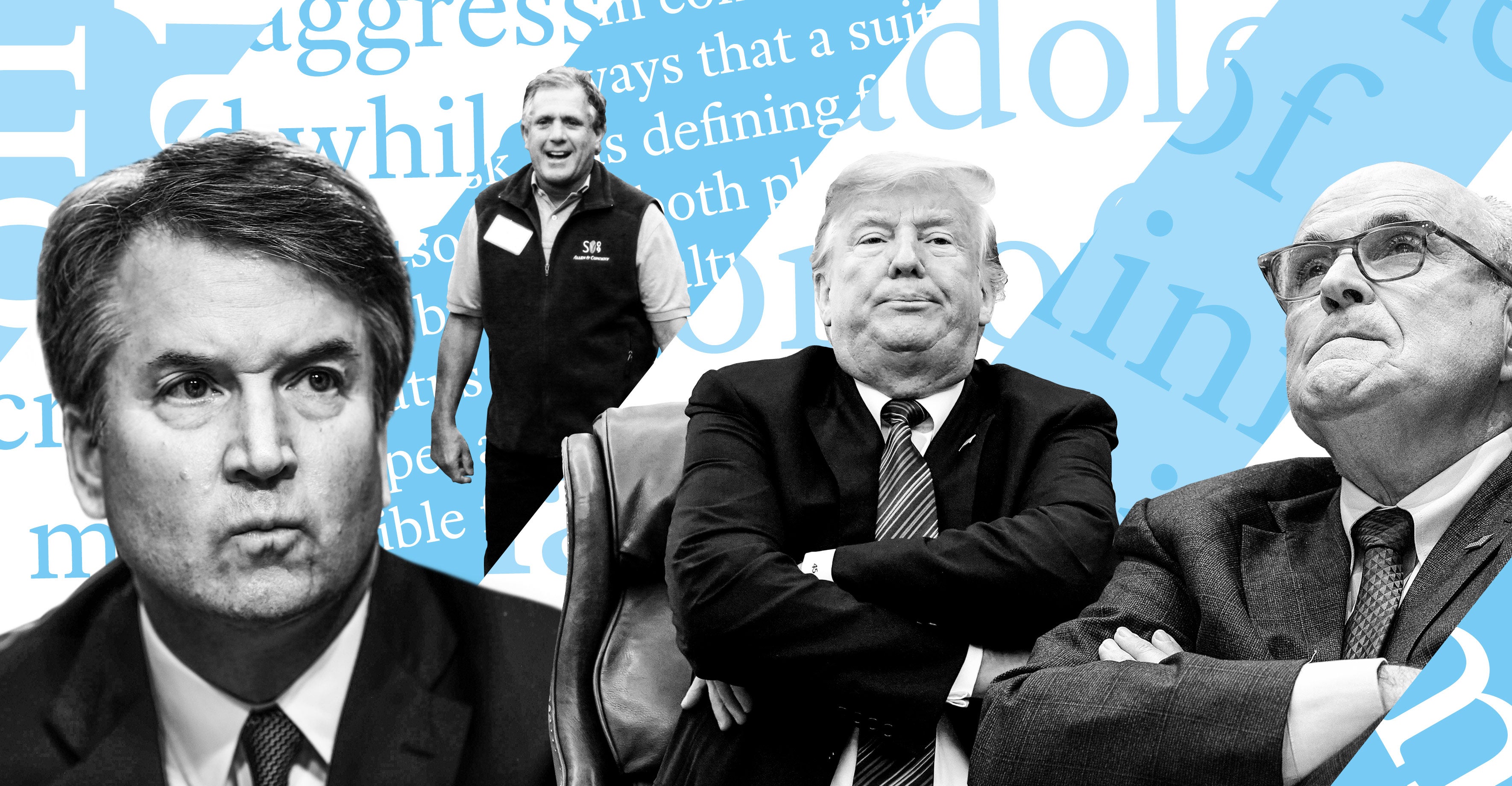Homeless people living at Macy's. Domino's Pizza paving the streets. A Walmart that became an internment camp for little kids separated from their parents.
Dystopian enough for you? Welcome to daily life in modern day America, or as I call it, Collapsonomics 101.
I want to tell you the story, in four principles, of how, in just a few decades, a generation of crackpot economists, addle-brained pundits, and fanatical Soviet politicians imploded the world's richest society into such an astonishing, grotesque, bizarre, and grim dystopia, that people now live in abandoned department stores, depend on pizza delivery companies to repair roads, and Walmarts are used to imprison kids.
Don't invest in society, ever, period, full stop. Everybody should be self-reliant. Let's go back to the stone age, where we're all carving our own arrowheads.
For sane people, a society, like anything else we wish to grow and appreciate in wealth and value and worth, from our home to our selves, is something we should therefore invest in. Yet a society is the only thing that we don't see as an "investment", isn't it? Hence, in 1950 or so, American government expenditure was 20% of GDP. In 2018, it was…20% of GDP. But every other rich country spends north of 40% of GDP socially. Advertising tells us shoes are an "investment", crackpots tell us that buying guns for teachers is an "investment", and banks tell us that the stock market is an "investment". But most of those things are not investments at all — and none of those things are nearly as good as investment as society itself.
Why? Because a modern post-industrial economy is not made of factories, smokestacks, and assembly lines. It needs educated people. It needs healthy people. It needs safety nets, so people can be bold and take big risks. All of those things allow people to be creative, imaginative, entrepreneurial, adventurous, free-thinking, reasoned, civilized, kind, decent, and humane. Here are a few things that happened roughly between 1950 and 2018: antiobiotics, chemotherapy, the internet, the UN, the EU, human beings landing on the moon, and the discovery of DNA — because people relied on each other's expertise, creativity, boldness, and knowledge, not because everyone was whittling their own arrowheads on the banks of the nearest river.
But if you are a self-reliant atom struggling to exist, because your politicians are taking healthcare away from your kids, because you'll never retire, because you are never allowed to rely on anyone else — you'll never fully be any of those things on the first list, much less accomplish world-shaking things like on the second list, all of which depended critically on people investing in, or relying on, each other. You'll be productive and efficient — a cog in a machine. But a machine of what? Don't worry — we're getting to that. For now, here is the point. Only investing in a society can yield benefits like longer, happier, saner, healthier, closer, gentler, wiser lives. And so if you want to collapse a society, the first step is to do what America did: never invest in it, a single penny more, forever, so that things fall apart. That's the first principle of collapsonomics.
Waste as much money as possible on everything that's not an investment. Make sure that corporations, banks, and hedge funds create as little real value as humanly possible. If you really want to collapse a society, the next step after not investing in it is to spend lots of money on everything else that's wasteful, pointless, and useless — especially things which create nothing of real value whatsoever.
Hmm, what meets that criterion? Thankfully for us — we're collapsonomists now — lots of things. Banks, hedge funds, insurance companies. They are only mechanisms to allocate things of value — whether cars, computers, books, or time — but not to create them. Ads, targeting, marketing. Again — ways to allocate things of value — but not to create them. That's a basic economic truth.
Guess what? Over half the American economy is now composed of things that create nothing of real value, like advertising and finance. Why is that? It's because those are the sectors that are the most heavily subsidized, by a very long way. The banking sector gets trillions in bailouts — and is still on life support. Advertising doesn't have to repay society for creating the Internet and WWW — it can bank the profits thereof till kingdom come. Subsidy after subsidy — the growth of a false economy, that's over half…bullshit.
Walmart's profits? $10 billion. How much it costs to support Walmart's workers, by way of food stamps, public housing, and healthcare? $8 billion. 80% of Walmart's profit isn't the real thing — it's merely internalized public spending, aka your money and mine.
So there are two next steps to collapse an economy. Waste money on stuff that creates nothing of real value — prop it up, subsidize it, throw fortunes at it. And instead of using public spending on investments like education, healthcare, transport, finance, or media, use it to pay the wages corporations should be paying — so that shareholders and execs can rake in millions, while everyone else struggles to make ends meet. That way, a society grows impoverished in four ways, not just one. The public purse is drained. Social investments are never made. And inequality begins to spiral out of control — as value itself, stuff that really improves and transforms human lives, is begins to get sucked out of the economy.
Ah, but how far, and hard, can we really suck all the value out of an economy? We've just scratched the surface.
Privatize public goods. Make everything a market. That way, no idea or notion of the public interest or common good can ever come to be — and progress itself will never be possible. The next step in collapsing an economy is to reverse centuries of progress in a single swoop. This is where the real action is, as every good kleptocrat knows. Take a nation's existing public assets — whatever they might be, energy grids, universities, hospitals, schools — and begin selling them off. Why? Well, there's always a reason, if you look hard enough. The debt! The deficit! A war! Any pretext will do, really, because people don't understand economics, because, well, you've been cutting school spending, so who's going to teach it to them?
So. Privatize every last public good that you can think of. National monuments? Parks? Libraries? How about the postal service? There's a long list, if a country's been around at least a century or two.
But don't just privatize it in any old way. Sell it to the lowest bidder. The real bastards. The vultures, the carrion-eaters. Sell the energy grid to the private equity fund who'll fire half the staff, make the other half work twice as much for half the money, raid the pension scheme, and funnel all that money — earned not through any real work, by bettering anyone's life, but only by making a whole lot of lives a whole lot worse — right back into the financial system that creates no value. That way, you get a trifecta of collapsonomics: the economy "grows", but people's incomes shrink, and their savings implode. Now we're talking.
Remember the principle — nothing should be a public asset, or even held in trust or stewardship, every single thing in a society should be privately owned, juiced and squeezed for maximum profit, preferably as quickly as possible, so all the value, all the wealth invested in it so carefully over decades, maybe centuries, by generations, can be sucked out of it in years, preferably quarters. That's why you hire the vultures, after all. And don't forget to let them keep at most of what they take — why else would anyone do such a disgusting job?
That way, if you do all the above, you'll get two extra trifectas of collapsonomics: inequality spikes again, huge swathes of jobs vanish overnight, and the ones that are left are dead-end jobs, without benefits, safety nets, stability, security. But because now the bar is lowered for everyone, the quality of the average job goes down across the board. If you're lucky, jobs might even become gigs, as people become desperate just to work at all. Soon enough, nobody will really remember that society was once a thing built for a notion of a common good.
That's what American leaders did for decades — and look what a fantastic job they did collapsing their economy. If you're lucky, you'll end up where they did — imploding your middle class in less than twenty years.
Don't ever measure anything in society but profit. Don't let people suppose anything else matters in any way whatsoever. The point of every instant of every human life should be to maximize profit. Consider this. The American economy's GDP is "growing" — but life expectancy is falling. That might strike you as, well, completely backwards — but that's because you are still a sane person. To the average economist, pundit, or other advocate of collapsonomics, that is reason to stand up and cheer. Everything's great!!
So if you really want to finish the job of collapsing an economy, create a measure that adds up all the profit across the economy — and make sure it leaves out anything and everything that really matters, like people dying young. You've already sucked all the value out of the economy, anyways. The economy is now a thing that makes profit not by creating stuff of real value anymore — but by selling stocks, bonds, ads, targets, audiences, eyeballs, psychological profiles, influence, misinformation, propaganda, duplicity, extremism, fearmongering, Ponzi schemes, insulin that costs pennies to make at thousands, fresh teenage blood, on-demand butlers, apps that listen to your every word, rage, misery, loneliness, despair, greed…all to the lowest bidder, who might just be Vladimir Putin, LLC. But who cares?
Wait, you ask. Isn't that, well, the very stuff of human folly itself? Of sheer ignorance and rank stupidity? Of course it is. That is precisely how we will finish the job of collapsing society.
You see, then our work is done. All that we have to do is say — "but the economy is growing!!", and when people say, dumbfounded, "Wait! Hold on!! My life isn't!", all that we have to do is reply, "well, that is because you are not working hard enough. You must work harder. You must punish yourself, and everyone else, a little more. You are the problem! Not the system. The system is perfect and big and smart, and you are little and imperfect and quite dumb. Who do you trust — you, or the system?"
That's the coup de grace of collapsonomics. The finishing move. Checkmate, game over.
We have made people unwitting cogs in the machines of their own ruin. The harder that they work, the poorer they will get, and the poorer they get, the harder that they will work. They will never aspire to great and grand and noble things anymore, and great and grand and noble things will never inspire them, either. All you have to do is tell them that step by step, the promised land, is coming closer. There! See the light?! It's just a little further down the abyss.
Welcome, my friend, to the wonderful world of Collapsonomics. I hope you enjoy your stay in paradise.
Umair
June 2018











